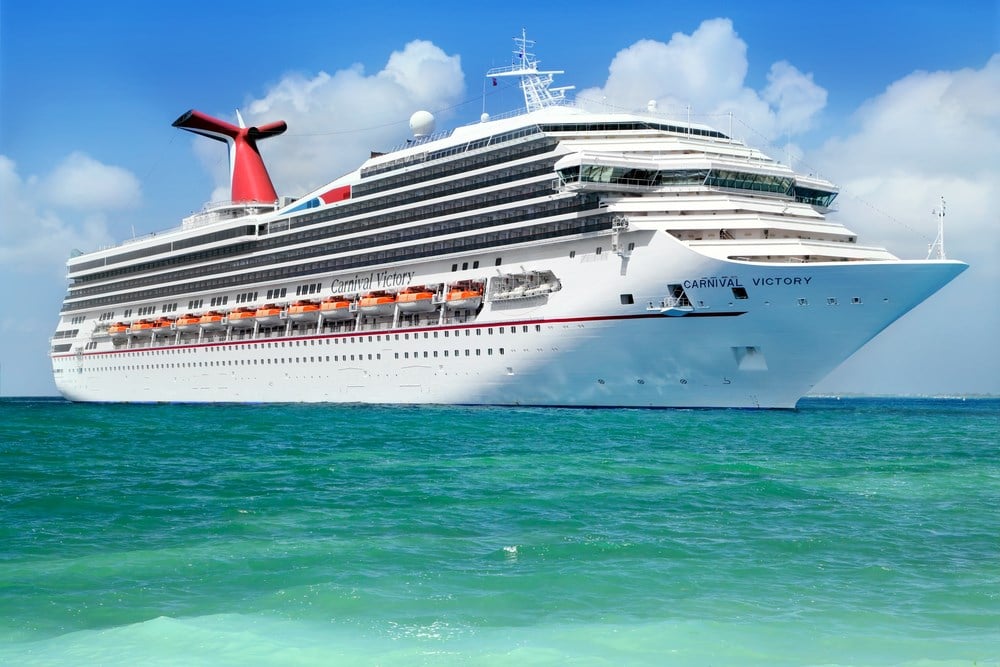 Up 129% year-to-date, Carnival Corporation & plc (NYSE: CCL) is one of five S&P 500 stocks that have doubled in 2023. Rival Royal Caribbean is another. The unlikely pair is tucked between mega cap technology companies NVIDIA, Meta Platforms and Tesla as this year’s best S&P performers — and they may not be done.
Up 129% year-to-date, Carnival Corporation & plc (NYSE: CCL) is one of five S&P 500 stocks that have doubled in 2023. Rival Royal Caribbean is another. The unlikely pair is tucked between mega cap technology companies NVIDIA, Meta Platforms and Tesla as this year’s best S&P performers — and they may not be done.
A recent Cruise Lines International Association (CLIA) report shows that cruises remain one of the fastest-growing tourism sectors. Some 31.5 million passengers are forecast to climb aboard an ocean-going vessel this year, a 54% jump from 2022. And with pent-up cruise demand expected to set the stage for lasting demand, cruise line operators are ramping their fleets.
CLIA projects that global cruise capacity will increase by approximately 100,000 by 2028 as more trips and destinations are added to the cruise lineup.
When you’re the world’s top cruise line by passenger volume as Carnival is, rising industry demand and supply is a dream scenario.
Carnival bears argue, however, that volatile fuel prices and geopolitical tensions remain powerful headwinds. And with U.S. Covid cases and hospitalizations on the rise, pandemic risks may be far from over.
For a company whose stock price has tripled over the last 10 months, these are valid concerns. But barring a major global health setback, Carnival appears to have the wind at its back to overcome these challenges. Here are four reasons why.
#1 - Fundamental Improvements
Carnival’s third consecutive bottom-line beat in fiscal Q2 showed that the market is still being surprised by the state of the cruise industry. But the more impressive metric is that the company returned to positive cash flow during the period — and now has a much improved $7.3 billion liquidity position. Sitting on this level of cash should allow it to operate the business without having to tap into the capital markets for more money.
Absent the threat of new share issuance (and its dilutive effect), traders are more likely to bid Carnival shares higher. This is a welcomed change of direction for a company that has raised $23.6 billion since March 2020 to stay afloat. A fundamentally healthier Carnival is also more likely to attract big institutional investors that require certain marks of financial strength.
#2 - Out With the Old, In With the New
Carnival is expected to return to profitability in fiscal 2024. A significant reason why? Its fleet is getting younger.
Since the pandemic began, the company has replaced 20 older ships with 12 newer ones. As a result, fuel efficiency has trended higher and could continue to do so as this process continues. Fuel-efficient ships translate to lower costs and higher profits — especially when ticket prices are up. It is a well-timed shift, given the industry’s elevated labor and food costs.
Carnival’s current fleet consists of 25 ships that sail under the Bahamas and Panama flags. Later this year, the Mardi Gras-themed Carnival Jubilee will join the fun, followed by the Italian-style Carnival Firenze in 2024.
#3 - CCL Chart Developments Are Bullish
As Carnival’s fundamental picture improves, so too does its technical picture. A ‘golden cross’ recently emerged on the daily chart. This is a bullish moving average crossover that often leads to a sustained uptrend. The last time it happened, the stock ran from roughly $20 to $30 over the course of seven months ended June 2021.
CCL continues to get good support from the 50-day line, which could ultimately navigate the stock back to its post-Covid highs. If it can break through 250-day resistance at $18.83, things could be smooth sailing from there.
#4 - Wall Street Price Targets Are Floating Into the $20’s
The market’s immediate reaction to a better-than-expected performance and bright outlook was nonsensical. After dipping below $14, CCL has moved higher — but remains below the $19 consensus price target (3% upside).
Sell-side research groups have been adjusting their Carnival price targets since the Q2 report — and in many cases, upward. The majority of the firms that actively cover the stock now have targets in the $20 to $25 range. Current Street targets for Royal Caribbean (no upside) and Norwegian Cruise Lines (-9% downside) are less inviting.
